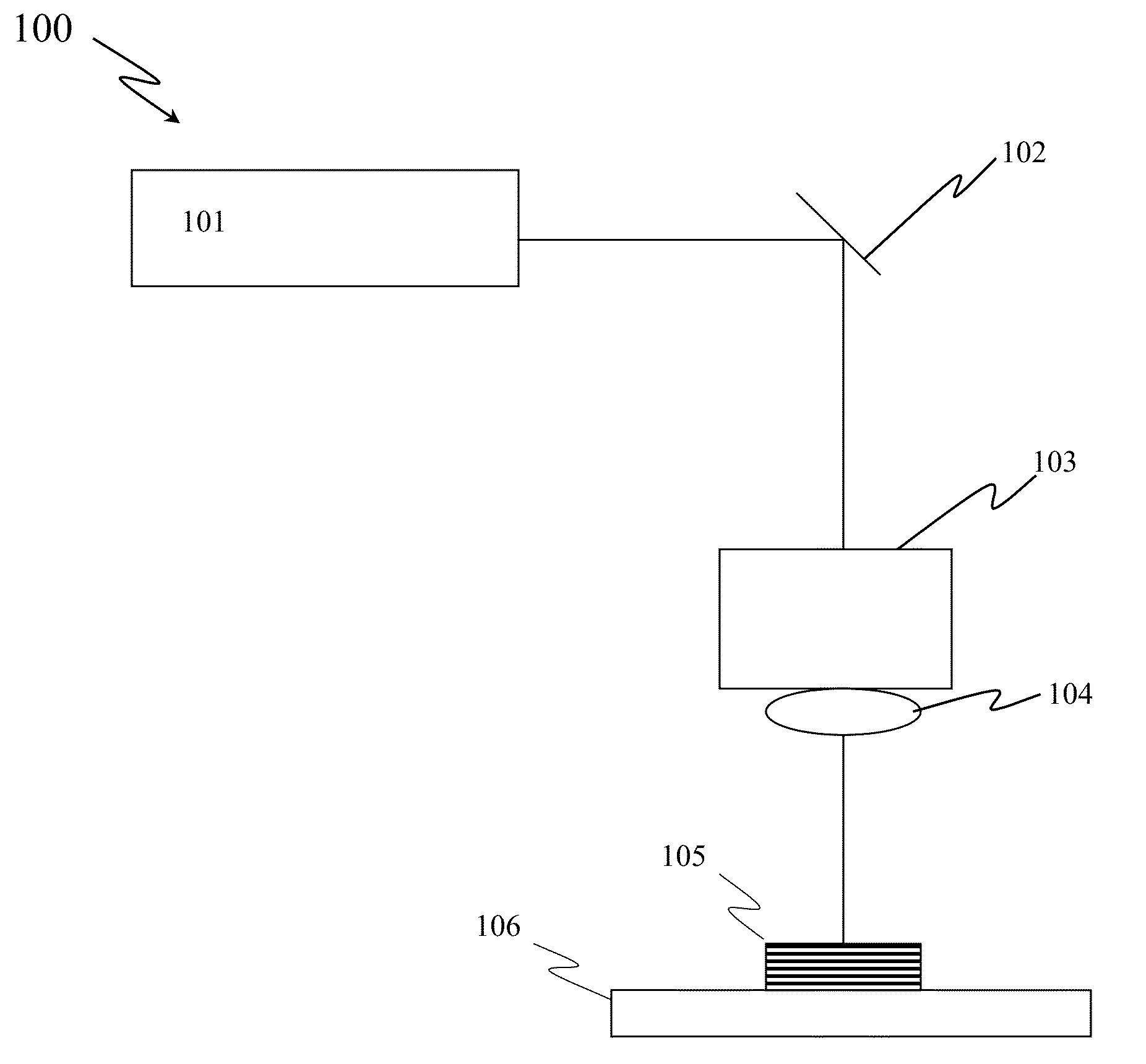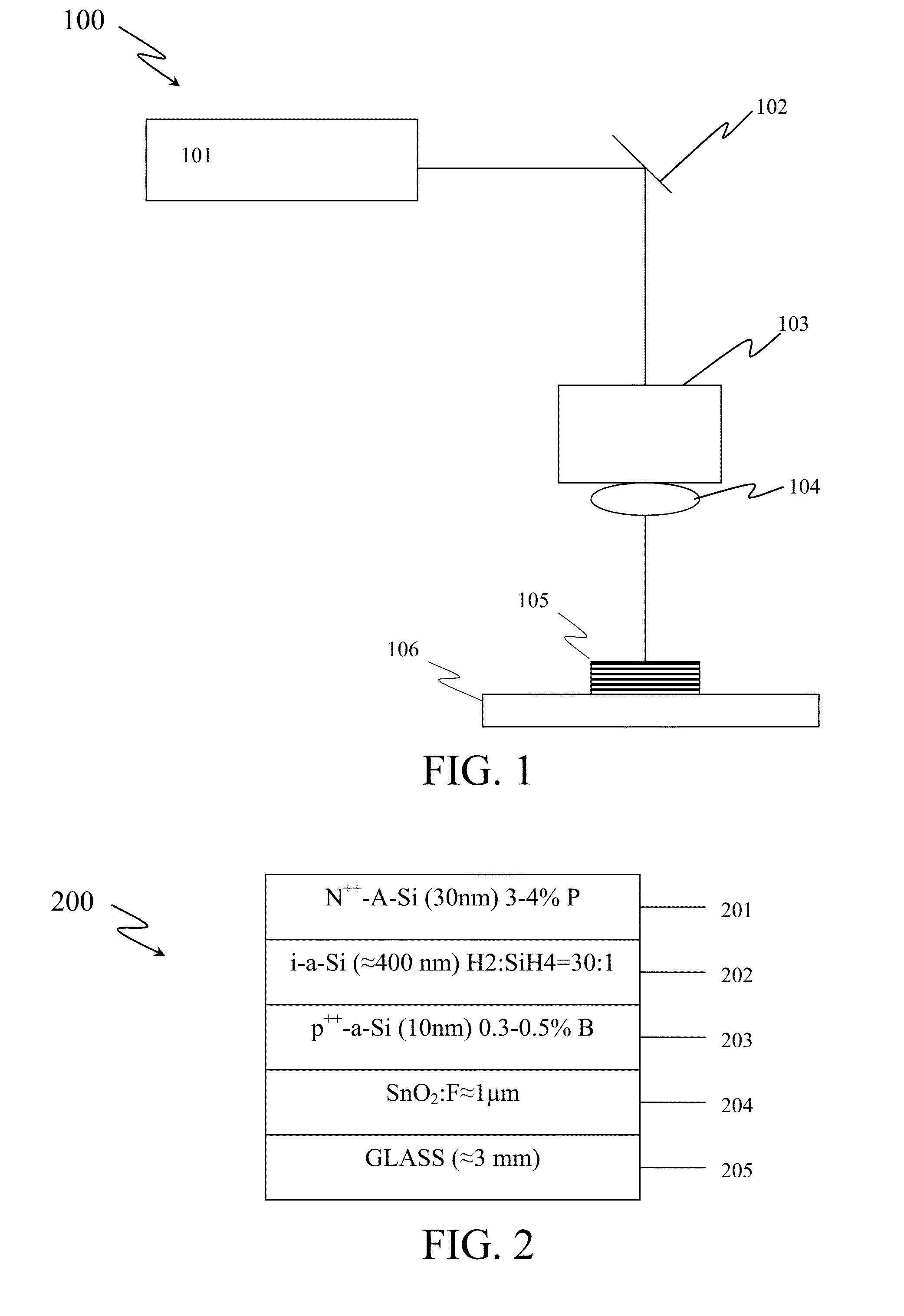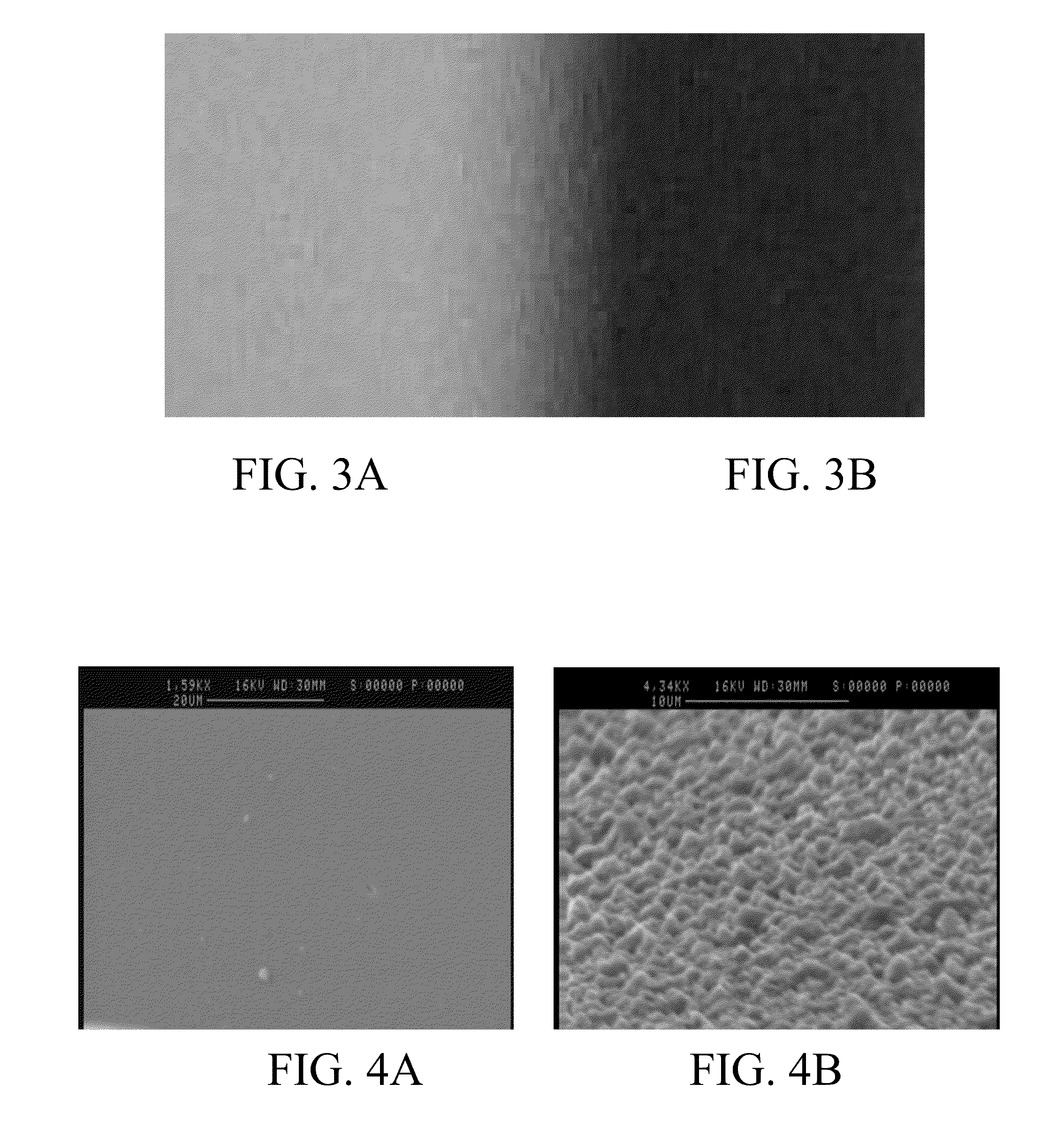Systems and methods of laser texturing of material surfaces and their applications
a technology of material surface and texturing, applied in the field of laser texturing of material surface, can solve problems such as surface properties change, and achieve the effect of improving the quality of the surfa
- Summary
- Abstract
- Description
- Claims
- Application Information
AI Technical Summary
Benefits of technology
Problems solved by technology
Method used
Image
Examples
example 1
[0161]A method for texturing a surface of a material, comprising: providing a gaseous or vacuum environment in an area around the surface of the material; irradiating a portion of the surface with laser pulses, wherein the laser pulses have: a laser pulse energy density of about 0.05 J / cm2 to about 5 J / cm2, a wavelength of about 200 nm to about 2000 nm, a pulse width greater than 0 ns and less than about 30 ns; and wherein the method produces a periodic array of pillars or a non-periodic array of pillars on the surface, resulting in changes in properties of the surface.
example 2
[0162]The method of example 1, wherein the laser pulses are sent at a repetition rate of about 1 Hz to 100 MHz.
example 3
[0163]The method of example 1 (as well as subject of example 2), wherein the laser pulses are sent at a repetition rate of about 20 Hz to 600 kHZ,
PUM
| Property | Measurement | Unit |
|---|---|---|
| Time | aaaaa | aaaaa |
| Time | aaaaa | aaaaa |
| Time | aaaaa | aaaaa |
Abstract
Description
Claims
Application Information
 Login to View More
Login to View More - R&D
- Intellectual Property
- Life Sciences
- Materials
- Tech Scout
- Unparalleled Data Quality
- Higher Quality Content
- 60% Fewer Hallucinations
Browse by: Latest US Patents, China's latest patents, Technical Efficacy Thesaurus, Application Domain, Technology Topic, Popular Technical Reports.
© 2025 PatSnap. All rights reserved.Legal|Privacy policy|Modern Slavery Act Transparency Statement|Sitemap|About US| Contact US: help@patsnap.com



